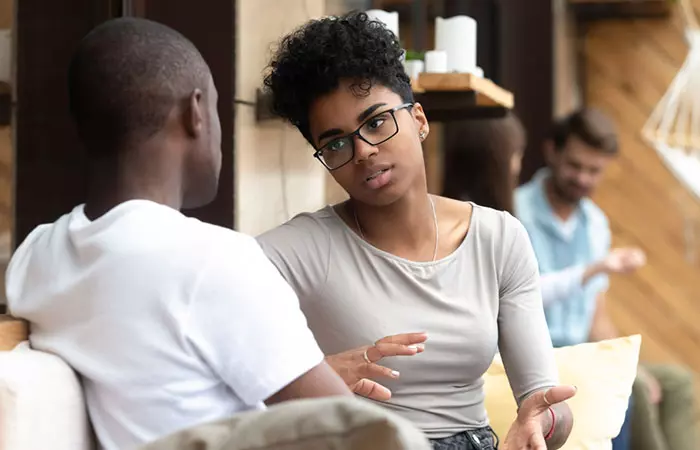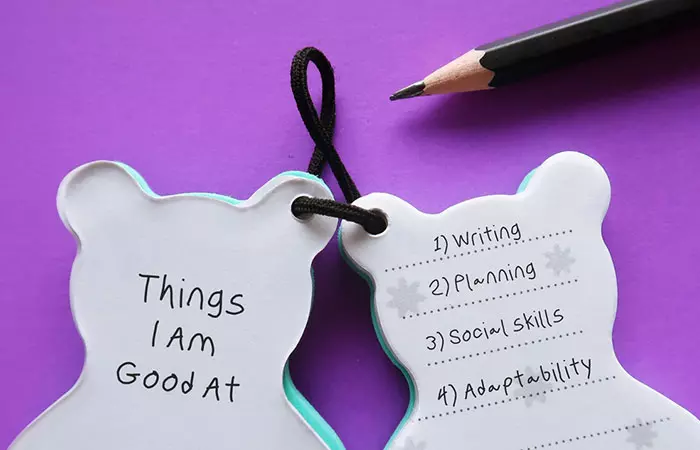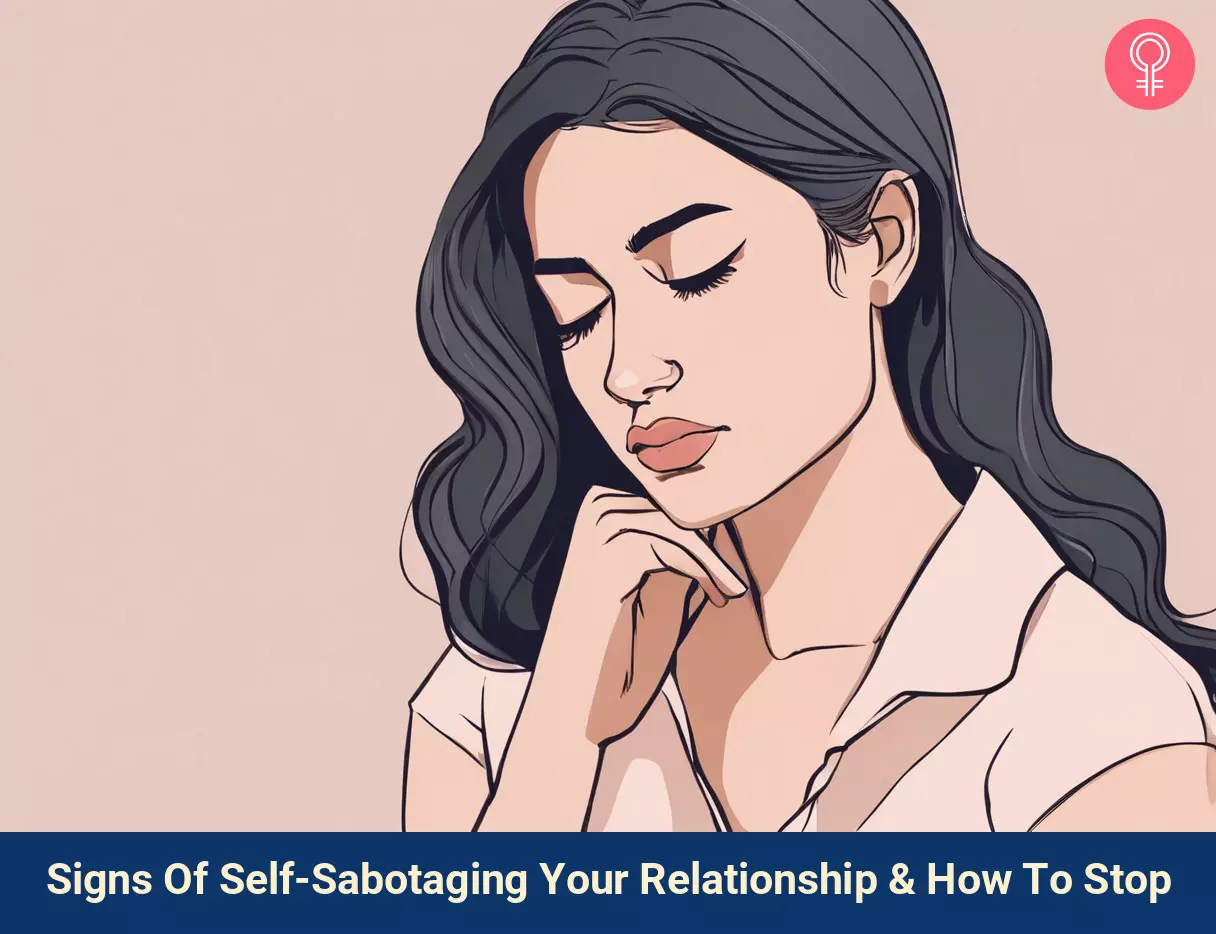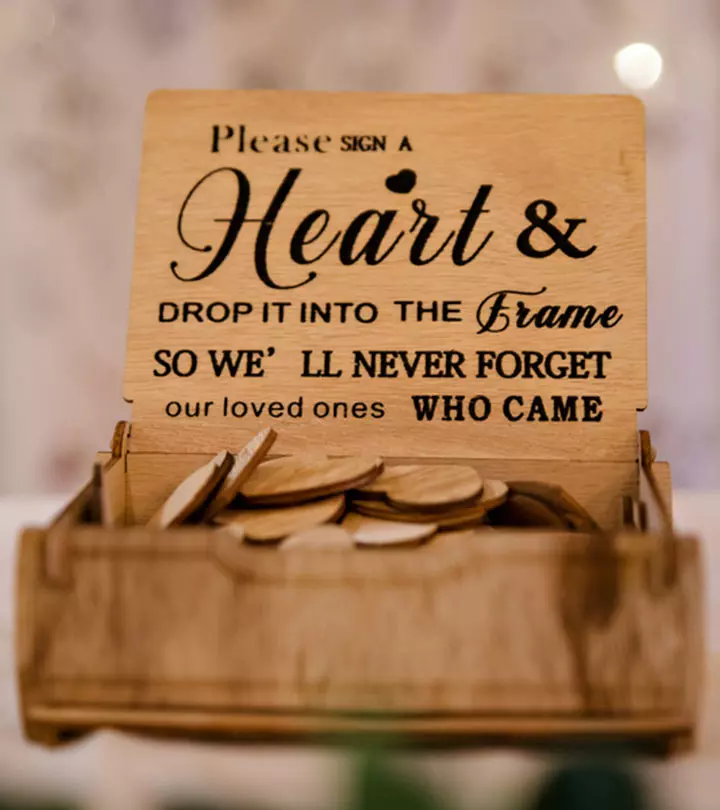How To Stop Being Insecure In A Relationship – 15 Ways
These tips will help you build confidence in yourself and the relationships around you.

Image: Shutterstock
Relationships are complicated as they are beautiful but messy too. It is insecurity that makes a relationship messy. Hence, if you want to understand how to stop being insecure in a relationship, continue reading.
There comes a point in every relationship where one or both the partners feel insecure. Insecurity arises from self-doubt and low self-esteem. We often think that we cannot keep our partners happy because we are unsure of ourselves. This not only takes away your inner peace and affects your mental health, but it also dangerously impacts your relationship. It can lead to uncountable misunderstandings, develop distrust, and create emotional distance between you and your partner. You can come off as a horrendously jealous person, and your partner may feel too suffocated in the relationship. The solution? Listed below are some helpful tips you can use to get over your insecurities and gain confidence. We also will understand what causes you to feel insecure in the first place. Read on.
In This Article
Why Do We Feel Insecure In A Relationship?
Insecurity mainly stems from a lack of confidence and self-love and the fear of losing your partner. It may also be due to past negative experiences, abandonment issues, and low self-esteem. Although the reasons for insecurity in a relationship can be different for everyone, in most cases, it manifests as jealousy, arguments, lack of trust, and snooping.
Whatever the cause of your insecurity, it is important to deal with it in a healthy manner so that you can be more honest, open, and loving with your partner and build a nurturing relationship together. Gaining self-confidence will also give you the courage to walk away from a toxic relationship if you are being abused.

 Quick Tip
Quick TipKey Takeaways
- Insecurity in a relationship can gradually weaken the bond between you and your partner.
- If you are plagued by a fear of losing your partner or lack confidence in yourself, you may experience insecurity in your relationship.
- It is essential to boost your confidence and avoid unnecessary comparisons to feel secure in your relationship.
How To Stop Being Insecure In A Relationship
If you find yourself constantly feeling insecure in your relationship, it is time to get to the root cause of your insecurities. Working on becoming more confident and building a healthy sense of self-love can work wonders on how you perceive yourself, which then reflects in your relationships with others.
Austen, a blogger, shared his experience of how he dealt with feelings of insecurity in his relationship. He said, “When I started practicing mindfulness, it helped me detach from that aggravating voice and the shitty, disempowering things it was telling me about myself (i).” This practice helped the blogger deal with feelings of jealousy and neediness that stem from the concern that one isn’t good enough for their partner.
Here are 15 easy and effective ways to question your limiting beliefs, build more confidence, and let go of your insecurities.
1. Accept Yourself And Your Partner
Often, insecurities arise from being overcritical of yourself. Take this as a reminder to accept yourself as you are.
- Each person is unique, and you do not have to fit into every mold society expects you to fit into.
- Learn to appreciate your uniqueness and try not to be too self-critical.
- Don’t dwell on your shortcomings while working on them. Instead, focus on your strengths and celebrate them.
- Similarly, accept your partner’s uniqueness with an open heart. Accept that you both are unique individuals with your own strengths and flaws, and stop comparing yourselves – and your relationship – with others.
 Quick Tip
Quick Tip2. Communication Is The Key

Effective communication is the key to any successful relationship.
- Convey clearly to your partner why you are feeling insecure. Do you feel they travel too much because of their job and don’t spend enough time with you? Do you feel sad when they make plans with you and then cancel at the last moment?
- Whatever your concern is, make it a point to convey it directly to your partner and have a heart-to-heart talk.
- If your partner is unwilling to communicate properly, this might be a sign of an underlying, more serious issue in the relationship.
3. Stop Playing The Blame Game
It is crucial to understand the difference between sharing what you feel and blaming someone for it:
- If you are facing relationship issues, it is easier to point fingers at your partner and blame them for all the problems than to accept your role in the problem. But, remember that being judgemental will not help resolve the situation.
- Consider having a frank discussion with your significant other, and be brave enough to accept the accountability for your part.
- However, if you feel your partner is the one who is always blaming you, treat this as a red flag – they might be emotionally abusing you.
4. Learn To Love Yourself First

The most important relationship you have is the one with yourself. You can’t be in a healthy, fulfilling relationship with someone else if you do not love and accept yourself unconditionally first.
Often, the main cause of relationship insecurities is a lack of self-love. Learning to love yourself can help you gain more confidence in yourself and help you let go of your insecurities. You can practice self-love in the following simple ways:
- Start each day with positive self-affirmations.
- Take care of your body by eating healthy and exercising regularly.
- Celebrate your small and big wins and surround yourself with people who encourage and motivate you.
- Do more of the things you love.
- Practice mindfulness and gratitude.
5. Avoid Unnecessary Comparisons
Constantly being glued to social media has gotten most of us into a never-ending cycle of comparing ourselves, our lives, and our relationships with others. This only leads to feelings of inadequacy and insecurities.
- One of the easiest ways to drop your insecurities is to avoid unnecessary comparisons.
- Instead of evaluating your life with your friends’ social media pages, learn to appreciate the blessings in your life. Did your partner plan a surprise birthday party for you with your favorite cake? Do they cook you warm, nourishing meals when you are sick and recovering?
- Appreciate their caring gestures and be grateful for all that they do for you.
6. Cultivate Confidence

Since self-doubt and lack of self-love is very often the root cause of insecurities, cultivating confidence and belief in yourself can do wonders for your state of mind.
- Developing confidence can be hard for those who have been through abuse or other negative experiences in the past.
- However, by becoming more conscious of your strengths and achievements, you can work to become a more confident version of yourself.
- The best way to realize your self-worth is to list out all the things you are proud to have achieved in your life and congratulate yourself.
- Write down all your strengths that make you the person you are. This will help you realize that you are a unique blend of different capabilities, skills, and talents.
- Once you learn to appreciate yourself, you will no longer need external validation for feeling secure.
7. Let Go Of The Past
Holding on to past memories and failures can weigh you down and prevent you from living fully in the present. We admit it is not easy to let go of past hurts and grievances. However, with time and effort, you can learn to gradually let go of your past burdens and free your time and energy for more mindful living in the present.
Try this easy tip to feel lighter instantly:
- Write down all your past hurts, grudges, and grievances on a piece of paper.
- Now, place this paper in a heat-proof bowl and set it alight.
- Watch this piece of paper burn down to ashes and experience an emotional release of your stagnant painful emotions.
8. Try Not To Overthink

Overthinking often stems from a place of fear.
- The next time you catch yourself overthinking, introspect to understand why you are overthinking. Do you have trust issues? Do you suspect your partner is lying about something? Or are you simply making up scary scenarios in your head?
- Unless based on something concrete, overthinking often leads to an endless cycle of doubt and fear.
- Figuring out your actual feelings can help you gain better control of your thoughts.
- Share your thoughts with your partner and have a healthy discussion about your genuine fears.
- You can also engage in mindful practices such as yoga or journaling. They can help relieve your anxiety and let you stay grounded.
- This way you can focus on the present, instead of worrying about the issues that have not yet occurred.
9. Change Your Narrative
Words are very powerful, and we often manifest what we keep on affirming.
- Stop telling yourself that you are an “insecure” person.
- Every time you say negative things to yourself, take a moment to consciously reflect on your thoughts.
- To bring a positive change in yourself and your relationship, you can stop negative self-talk and focus more on positive affirmations.
- Some examples of positive self-talk include “I am gaining more confidence in myself” and “I am becoming a secure and confident person.”
10. Get To The Root Cause Of It
Understanding that you have relationship insecurities is just the first step.
- Getting to the root cause of it is necessary to help you understand yourself and your emotions on a deeper level.
- Recent experiences of betrayal or rejection, past traumas, social anxiety, and negative self-beliefs can all contribute to insecurities.
Research shows that both anxious and avoidant attachment styles are associated with lower relationship satisfaction. A person’s insecure attachment may also affect their partner’s satisfaction level, although this effect is typically more significant for the individual themselves. Anxious attachment tends to create more severe emotional distress leading to higher levels of dissatisfaction while avoidant attachment causes emotional distance that may erode closeness in a relationship (2).
- If you have been betrayed recently, give yourself time to heal and gain more self-confidence before you start dating again. If you sense you have unresolved trauma, consult a good mental health professional to help you resolve your past pains.
11. Surround Yourself With Positive People
- We often take on the energy of the people around us, and that is why it is important to consciously surround yourself with positive and happy people.
- Keep your standards high when it comes to your social circle.
- Get rid of the negative people in your circle who seem to constantly drain your energy. Instead, choose to hang out with confident people with positive thoughts and empowering attitudes.
- The people you spend the most time with can significantly influence how you approach life and relationships.
- Surrounding yourself with productive, positive, and cheerful people is one of the best things you can do to imbibe these qualities yourself.
12. Trust Your Partner
Trust is the key to a happy relationship.
- If you constantly suspect your partner of betraying you without any concrete reason, then take a step back and relax.
- Be mindful of your relationship and prioritize communicating your needs and fears to your partner.
- If your partner has always been honest and open with you and has given you no reason to suspect betrayal, make a conscious choice to trust their words.
- However, if you notice that your partner often lies to you, ignores you, and tries to avoid important conversations, then consider their behavior to be a warning sign.
13. Limit Your Time On Social Media

How often do you check your social media accounts? Do you spend more than an hour daily scrolling mindlessly through streams of posts across platforms? Do you have a habit of stalking your partner’s exes?
- Limiting our time on social media and focusing more on being emotionally and physically present with your partner can work wonders in your state of mind.
- Set aside your phones and hit the gym with your partner, or team up and take the dogs out for a walk in the park.
14. Accept Your Insecurities As Part Of Being Human
This may sound counter-intuitive, but hear us out on this one.
- As human beings, we all tend to have our flaws. While doubting yourself constantly is a toxic habit that serves no good, we need to accept that feeling insecure sometimes is natural. It is part of the human experience.
- Accepting our flaws while consciously working on growing out of them is a beautiful gesture of self-love.
15. Channel Your Insecurities Into Something Productive
This is one of the most important tips for you to know!
- A great way to channel your insecurities is to find something productive to focus on.
- Focusing solely on your problems won’t help you build self-esteem.
- Start thinking about how you can solve your issues and evaluate strategies to make changes that will help you find the right solutions.
- Devote at least 30 minutes daily to something you love to do. You can paint, work out, sew, crochet, read, or write. Develop hobbies and interests that are fulfilling and make you happy.
- You can also choose to volunteer in a home for the elderly or help puppies and kittens in an animal shelter get adopted into loving homes.
Signs Of Insecurity In A Relationship
The realization of the insecurities can help you free yourself from the negative thoughts. If you experience the below signs of insecurities, consider going for counseling and promoting self-awareness to make it easy for yourself and your partner.
- Incessant stalking on social media and snooping on them.
- Having zero trust in your partner and always being worried that they are cheating on you.
- Always worrying that your partner will leave you.
- Not trusting your partner and trying to verify everything they say.
- Not being able to let down your guard during sexually or emotionally intimate moments.
- Feeling jealous of the other people in your partner’s life and not liking it.
- Seeking constant reassurance and validation from your partner about their feelings for you.
Learning how to stop being insecure in a relationship, be it a personal or professional one, depends on the foundation of trust and emotional bonding between two people. Thanks to therapy techniques and communication strategies, that help guide individuals into deeper connections, improved self-esteem, and enhanced mutual trust. Based on anecdotal evidence, these exercises have shown to help individual and personal growth and allow them to have richer, bolder, and more emotionally meaningful relations. Continue reading!
Techniques For Building Trust And Confidence In Relationships
Insecurities can undermine even the strongest relationships, but with self-awareness and intentional effort, they can be managed effectively. If you’ve ever wondered how to stop being insecure in a relationship, the following exercises are inspired by therapy techniques and communication strategies designed to build trust, boost self-esteem, and strengthen emotional connections.
While these activities can be incredibly helpful for personal growth and relationship improvement, they are not a substitute for professional support. If you’re experiencing severe or overwhelming insecurity, seeking guidance from a licensed therapist can provide deeper, tailored assistance. Take a look at some of these exercises and activities:
- Journal Your Insecurities: Write down what triggers your insecurities, how they make you feel, and any patterns you notice. This helps identify root causes and promotes self-awareness.
- The Evidence Check Exercise: When feeling insecure, list the facts that support your fears and facts that contradict them. This logical approach helps differentiate between assumptions and reality.
- Gratitude Sharing: Schedule time weekly to share three things you appreciate about each other. This focuses on the positive and reinforces emotional security.
- Mindful Communication Practice: Use “I” statements to express feelings without blame, such as, “I” feel anxious when I don’t hear from you because it triggers my fear of being distant.
- Attachment Style Quiz: Take an attachment style quiz as a couple, then discuss the results to understand each other’s emotional needs better.
- Scheduled Quality Time: Plan regular date nights or “unplugged” time to strengthen emotional bonds and reduce insecurity rooted in feeling neglected.
- Role-Reversal Conversations: Playfully switch roles in hypothetical situations to gain perspective on each other’s feelings and insecurities.
Infographic: Communication Tips For Couples
A lot of issues and insecurities in relationships stem from miscommunication. We tend to slip into a habit of holding ourselves back to avoid conflict, not realizing how those preventive measures could prove to be damaging instead. Constant, transparent communication ensures healthy teamwork between partners. Check out the infographic below on tips to communicate better in your relationship.
Some thing wrong with infographic shortcode. please verify shortcode syntax
Insecurity can lead to the downfall of any relationship as the basic element of trust is missing. Insecurity shows you being needy in a relationship. It projects you as an attention-seeker. There could be multiple reasons behind this feeling, such as negative past experiences and the fear of losing your partner. However, not all is lost, and you can easily replace this feeling with more positive attributes to strengthen your bond. For instance, you can work on your communication skills, stay away from mudslinging, avoid unnecessary comparisons, and surround yourself with positive people. This will help you accept your insecurities and trust your partner.
Remember that addressing your insecurities takes time and effort, but it’s worth it to build a strong and healthy relationship. By embracing vulnerability and honesty, setting boundaries, accepting yourself and others, practicing self-care and forgiveness, seeking reassurance, showing empathy, compromising, staying positive, considering therapy, and working on self-improvement, you can overcome your insecurities and have a happy and fulfilling relationship.
Frequently Asked Questions
What does a secure relationship feel like?
A secure relationship involves effort, love, positivity, trust, and respect for each other. Open and honest communication, valuing each other’s opinions, and growing together nurture a strong and healthy relationship.
Should you date if you are insecure?
Every person and relationship has insecurities. That should not stop you from dating. However, you need to slowly and steadily work on yourself. You need to understand the root cause of your insecurities and work towards healing yourself. Trust your partner and communicate your insecurities to them. Work on yourselves together and grow.
Are there any self-help books or resources that can help with relationship insecurity?
Yes, you can read self-help books like “Attached: The New Science Of Adult Attachment And How It Can Help You Find Love” By Amir Levine And Rachel Heller, “The Five Languages; The Secret To Love That Lasts” By Gary Chapman, and “The Jealousy Workbook: Exercises And Insights For Managing Open Relationships” By Kathy Labriola. These books can give insight into relationship patterns and provide practical strategies for building healthy relationships.
How can I build trust in my relationship to reduce insecurity?
Communicating honestly and openly, showing consistency in your commitments, being accountable for your actions, and respecting your partner’s feelings and opinions are some simple and effective ways of building trust in a relationship.
How important is setting boundaries in overcoming insecurity in a relationship?
Communicating your needs and expectations by setting boundaries can help prevent misunderstandings, conflicts, and feelings of insecurity and help build a strong and healthy relationship.
Illustration: How To Stop Being Insecure In A Relationship - 15 Ways

Image: Stable Diffusion/StyleCraze Design Team
Struggling with relationship insecurities? Watch this informative video that delves into powerful insights and practical strategies to overcome insecurity, boost confidence, and cultivate a thriving, fulfilling relationship
Personal Experience: Source
StyleCraze's articles are interwoven with authentic personal narratives that provide depth and resonance to our content. Below are the sources of the personal accounts referenced in this article.
i. 5 Tactics I Use To Cope With Relationship Insecurityhttps://hackernoon.com/p/publish
References
Articles on StyleCraze are backed by verified information from peer-reviewed and academic research papers, reputed organizations, research institutions, and medical associations to ensure accuracy and relevance. Read our editorial policy to learn more.
- Insecure Adult Attachment and Child Maltreatment: A Meta-Analysis
https://journals.sagepub.com/doi/10.1177/1524838017730579 - Insecure Attachment and Relationship Satisfaction: A Meta-Analysis of Actor and Partner Associations
https://www.sciencedirect.com/science/article/abs/pii/S0191886919302673
Read full bio of Rodolfo Parlati
Read full bio of Sneha Tete
Read full bio of Subhrojyoti Mukherjee
Read full bio of Gracia Odile



























Community Experiences
Join the conversation and become a part of our empowering community! Share your stories, experiences, and insights to connect with other beauty, lifestyle, and health enthusiasts.